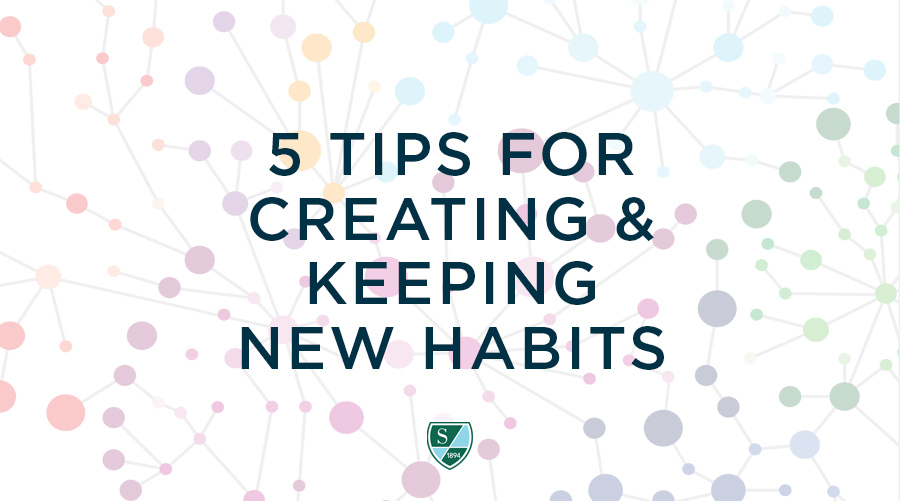As we near the end of January, you may be feeling like a failure for having ditched your New Year’s resolutions last week. Don’t despair! Shipley SEED teacher and mindfulness coach Marc Balcer is here to help with these five tips to help you make good on your goals for the new year and beyond.
Months ago, I mentioned to my friend John that I felt sluggish and slow each morning. “What do you have for breakfast,” he asked. For some reason, it hadn’t occurred to me that what I eat might impact how I feel. But John started to wax eloquent about his daily breakfast of sautéed kale and how great it made him feel. Not having anything to lose, I tried it the next morning. Not only did I make a mess of the kitchen, but I didn’t like it one bit. So, I tried steamed kale. Same thing. I looked on the internet and pulled up a recipe for a kale smoothie, mostly fruit with a wee bit of Kale. It was delicious. I did it again the next day. I slowly increased the Kale and reduced huge dollops of honey and peanut butter until I had a concoction that I now enjoy each morning. I tracked how I felt and noticed a lightness and new energy in my step. I’ve even roped in my wife. Habit change comes slowly and benefits from intention, support, and mindfulness. Thinking of making a change as the new year begins? Below are some tips from James Clear, Jonathan Foust, and Kristin Neff as you start your own habit journey.
1) Start with the “Minimum Effective Dose”
Identify the smallest action you can take toward habit change that will still have a meaningful impact. This might mean a two-minute daily meditation or getting back into shape with the Couch to 5k app which slowly ramps up the intensity. Our motivation ebbs and flows, so find a starting point that won’t rely on it.
2) Focus on Systems, Not Goals
We tend to get bogged down in goals and artificial deadlines, only to drop them when it is clear we won’t measure up. Identify a system that will make your habit most likely to stick and can be used to leverage this change to other parts of your life.
3) Harness Technology
Tracking your progress is critical and requires clear articulation of what you will do. You can do this manually or harness a vast ecosystem of tools including as Way of Life, Simple Habit, and Forest.
4) Get an Accountability Partner
There is no reason to go it alone. Recruit a friend or family member and commit to checking in regularly. My experience is that when I see someone else thriving with a new habit, it inspires me to act.
5) Don’t Forget Self-Compassion
Failure on the path of habit change is natural and normal. It also allows invites flexibility and adjustment when necessary. Embracing self-compassion can actually improve motivation and creativity.
Instructor Marc Balcer teaches an extensive, interactive unit on habit change in Shipley's 10th grade SEED class, where students chart their own path to improving fitness, reducing technology dependence, and expanding their knowledge. He regularly offers Creatures of Habit, a month-long virtual offering filled with mindful wisdom for enduring habit change. Watch The Curiosity Habit or check out guided meditations at the Your Mindful Coach Podcast.
You can also learn more about Shipley's SEED program on our website.










